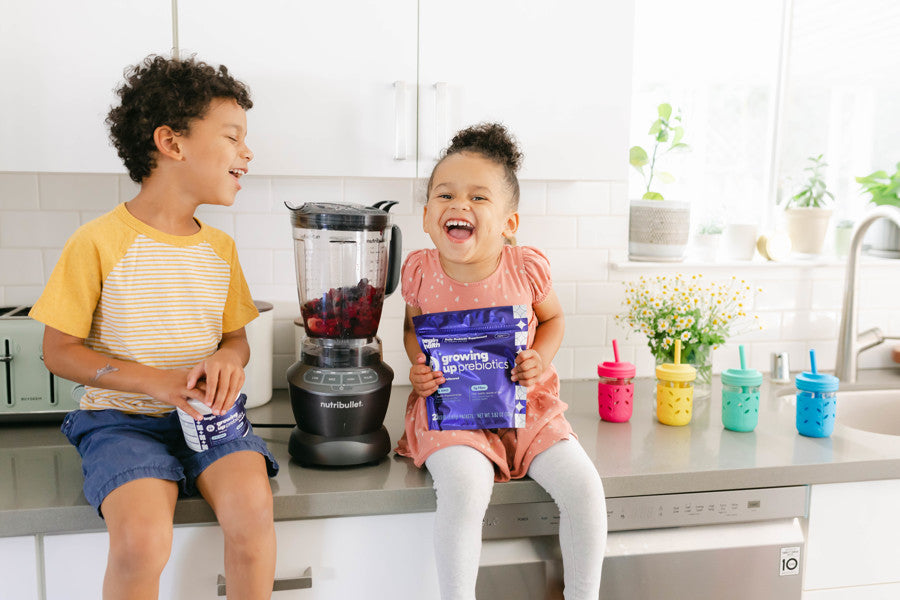Your Cart is Empty
Continue shoppingDo Sleep Habits Affect Constipation in Kids?
Medically Reviewed by May Zhu, RDN | Published March 28, 2024
share this article

While the relationship between sleep and overall health is well-established, the influence of sleep on digestive issues like constipation in kiddos is less understood. In this blog post, we'll review what the current studies tell us about how sleep can potentially be related to constipation in your little ones.
What is Constipation in Kids?
Constipation is a common gastrointestinal issue characterized by infrequent bowel movements, difficulty passing stools, and/or hard, dry stools. It can cause discomfort and impact the overall well-being of kiddos if left unaddressed.
Daily reads to help your little ones lead happier and healthier lives.
Buy Now
Join the
Happy Gut Club
The Role of Sleep in Digestive Health
-
Circadian Rhythms: The body's internal clock, regulated by circadian rhythms, influences various physiological processes, including digestion. Disruptions to regular sleep patterns can affect the body's natural rhythms, potentially impacting gastrointestinal function.
-
Gut Motility:Sleep plays a role in regulating gut motility, the movement of food and waste through the digestive tract. Adequate sleep supports healthy gut motility, while sleep disturbances or insufficient sleep may slow down bowel movements, contributing to constipation.
-
Stress and Relaxation:Quality sleep is essential for reducing stress levels and promoting relaxation, both of which are important for healthy digestion. Stress can exacerbate gastrointestinal issues, including constipation, while relaxation facilitates optimal bowel function.
Research Insights on Sleep and Constipation
-
A study published in the Journal of Pediatric Gastroenterology and Nutrition found that kiddos with sleep-disordered breathing (SDB), such as snoring or sleep apnea, were more likely to experience constipation compared to those without SDB. The researchers suggested that disturbances in sleep quality and oxygen levels during sleep may contribute to gastrointestinal issues.
-
Another study published in the journal Sleep Medicine revealed that children with insomnia or sleep disturbances were more likely to report functional gastrointestinal disorders, including constipation. The researchers hypothesized that disruptions to sleep patterns may affect gut motility and exacerbate constipation symptoms.
Practical Tips for Supporting Digestive Health
-
Establishing a Consistent Bedtime Routine:Creating a calming bedtime routine and ensuring kiddos get adequate sleep each night can support healthy digestion and bowel function.
-
Encouraging Relaxation Techniques:Incorporating relaxation techniques such as deep breathing exercises or gentle yoga before bedtime may help reduce stress levels and promote better sleep quality, benefiting digestive health.
-
Addressing Sleep Disorders: If kiddos experience persistent sleep disturbances or symptoms of sleep disorders like snoring or sleep apnea, it's essential to consult with a healthcare professional for evaluation and appropriate management.
Summary
Sleep plays a crucial role in digestive health, and disruptions to sleep patterns or inadequate sleep may contribute to constipation in kiddos. By prioritizing healthy sleep habits and addressing sleep disturbances, parents can support optimal digestive function and overall well-being in little ones.

Author
May Zhu, RDN
Trending

How to Transition Kids Off Stool Softeners Safely
read now
How to Know If Your Kid Needs a Stool Softener (or Something Else)
read now
Why Parents Are Choosing Prebiotics Over Stool Softeners for Kids
read now






